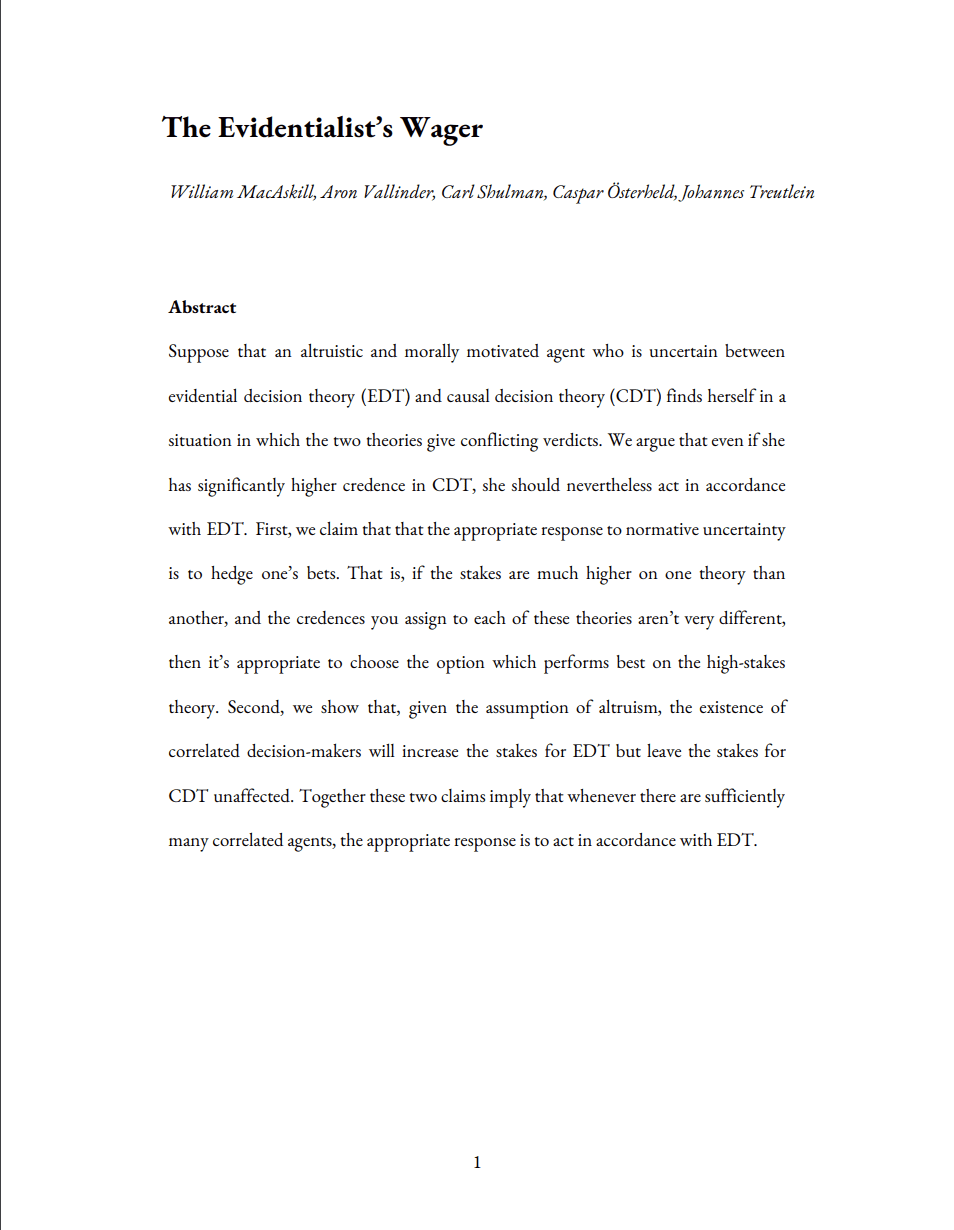The evidentialist’s wager
William MacAskill (Global Priorities Institute, Oxford University), Aron Vallinder (Forethought Foundation), Caspar Österheld (Duke University), Carl Shulman (Future of Humanity Institute, Oxford University), Johannes Treutlein (TU Berlin)
GPI Working Paper No. 12-2019
Suppose that an altruistic and morally motivated agent who is uncertain between evidential decision theory (EDT) and causal decision theory (CDT) finds herself in a situation in which the two theories give conflicting verdicts. We argue that even if she has significantly higher credence in CDT, she should nevertheless act in accordance with EDT. First, we claim that that the appropriate response to normative uncertainty is to hedge one’s bets. That is, if the stakes are much higher on one theory than another, and the credences you assign to each of these theories aren’t very different, then it’s appropriate to choose the option which performs best on the high-stakes theory. Second, we show that, given the assumption of altruism, the existence of correlated decision-makers will increase the stakes for EDT but leave the stakes for CDT unaffected. Together these two claims imply that whenever there are sufficiently many correlated agents, the appropriate response is to act in accordance with EDT.
Other working papers
Consciousness makes things matter – Andrew Y. Lee (University of Toronto)
This paper argues that phenomenal consciousness is what makes an entity a welfare subject, or the kind of thing that can be better or worse off. I develop and motivate this view, and then defend it from objections concerning death, non-conscious entities that have interests (such as plants), and conscious subjects that necessarily have welfare level zero. I also explain how my theory of welfare subjects relates to experientialist and anti-experientialist theories of welfare goods.
Desire-Fulfilment and Consciousness – Andreas Mogensen (Global Priorities Institute, University of Oxford)
I show that there are good reasons to think that some individuals without any capacity for consciousness should be counted as welfare subjects, assuming that desire-fulfilment is a welfare good and that any individuals who can accrue welfare goods are welfare subjects. While other philosophers have argued for similar conclusions, I show that they have done so by relying on a simplistic understanding of the desire-fulfilment theory. My argument is intended to be sensitive to the complexities and nuances of contemporary…
A paradox for tiny probabilities and enormous values – Nick Beckstead (Open Philanthropy Project) and Teruji Thomas (Global Priorities Institute, Oxford University)
We show that every theory of the value of uncertain prospects must have one of three unpalatable properties. Reckless theories recommend risking arbitrarily great gains at arbitrarily long odds for the sake of enormous potential; timid theories recommend passing up arbitrarily great gains to prevent a tiny increase in risk; nontransitive theories deny the principle that, if A is better than B and B is better than C, then A must be better than C.

